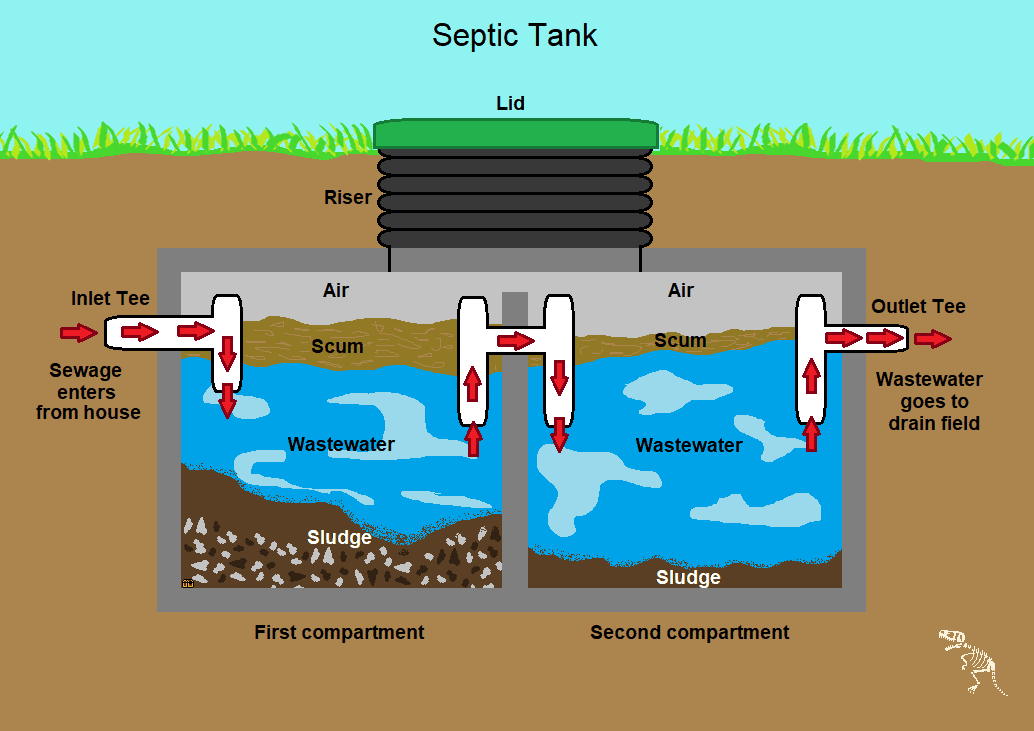Septic tanks play a crucial role in managing wastewater in homes and businesses in Berthoud, Colorado. As an essential part of the septic system, regular maintenance, particularly septic tank pumping, is vital to ensure its proper functioning and prevent potential issues. In this comprehensive guide, we delve into the importance of Berthoud septic tank pumping, covering the process, benefits, and maintenance tips.
Understanding the Septic Tank Pumping Process
1. Why is Pumping Necessary?
Septic tanks are designed to collect and treat wastewater from toilets, showers, sinks, and other household sources. Over time, solid waste accumulates at the bottom of the tank, forming sludge. This sludge can reduce the tank’s capacity and hinder its efficiency. Pumping removes these accumulated solids, preventing overflow, clogs, and potential damage to the drain field.
2. Frequency of Pumping:
The frequency of septic tank pumping depends on various factors, including the tank size, the number of occupants in a household, and overall water usage. As a general guideline, experts recommend pumping every 3 to 5 years. However, individual circumstances may vary, and it’s crucial to monitor the tank’s condition and schedule pumping accordingly.
3. Professional vs. DIY Pumping:
While some homeowners may consider a DIY approach to septic tank pumping, it’s advisable to hire a professional service. Certified technicians have the expertise and equipment to safely pump and dispose of the waste. Attempting to pump the tank without proper knowledge and equipment can lead to environmental hazards and damage to the septic system.
Benefits of Regular Septic Tank Pumping
1. Preventing System Failure:
Regular pumping prevents the accumulation of sludge, ensuring the septic system operates efficiently. A well-maintained system is less likely to experience failures, reducing the risk of costly repairs and replacements.
2. Protecting the Environment:
A malfunctioning septic system can contaminate groundwater and surface water with harmful bacteria and pollutants. Regular pumping minimizes the environmental impact, promoting a healthier and safer local ecosystem.
3. Avoiding Foul Odors:
Accumulated sludge can produce unpleasant odors, both inside the house and in the surrounding area. Regular pumping eliminates these odors, providing a more comfortable living environment.
4. Increasing System Lifespan:
Proactive maintenance, including regular pumping, extends the lifespan of the septic system. Investing in preventive measures helps avoid premature system failure and the need for costly replacements.
Maintaining a Healthy Septic System in Berthoud
1. Monitor Water Usage:
Excessive water usage can overload the septic system, leading to more frequent pumping requirements. Implement water conservation practices, such as fixing leaks and using water-efficient appliances, to reduce the strain on the system.
2. Proper Waste Disposal:
Be mindful of what goes down the drains and toilets. Avoid flushing non-biodegradable items, grease, and chemicals. These substances can accumulate in the septic tank, leading to clogs and reduced efficiency.
3. Regular Inspections:
Periodic inspections by a qualified technician can identify potential issues before they escalate. Detecting problems early allows for timely repairs, preventing major disruptions and ensuring the continued functionality of the septic system.
4. Educate Residents:
Ensure all household members are aware of proper septic system usage and the importance of routine maintenance. Educating residents helps promote responsible water consumption and waste disposal practices.
Essential Maintenance Tips for Berthoud Homeowners
While septic tank pumping is a critical part of maintenance, there are additional steps homeowners can take to ensure the longevity and efficiency of their septic systems:
-
Water Conservation:
-
Be mindful of water usage to prevent overloading the septic system. Fix leaks promptly, use high-efficiency appliances, and spread laundry loads throughout the week.
-
-
Proper Waste Disposal:
-
Avoid flushing non-biodegradable items, chemicals, and grease down the drains. These can contribute to clogs and hinder the wastewater treatment process.
-
-
Regular Inspections:
-
Schedule regular inspections of your septic system to catch potential issues early. Professional inspections can identify problems before they escalate.
-
-
Vegetation Management:
-
Avoid planting trees or large shrubs near the septic system, as their roots can damage the tank and drainfield. Keep the area around the tank clear of heavy equipment and vehicles.
-
-
Use Septic-Safe Products:
-
Choose septic-safe cleaning and personal care products to avoid introducing harmful chemicals into the system. These products are designed to be biodegradable and won’t disrupt the septic tank’s microbial balance.
-
Conclusion
In conclusion, septic tank pumping is a crucial aspect of maintaining a healthy and efficient septic system in Berthoud, Colorado. Regular pumping not only prevents system failures and protects the environment but also contributes to the longevity of the septic system. By understanding the importance of Berthoud septic tank pumping and adopting proactive maintenance practices, homeowners can ensure a clean and sustainable wastewater management system for their properties. Invest in the well-being of your septic system, and you’ll reap the benefits of a trouble-free and environmentally friendly home.



